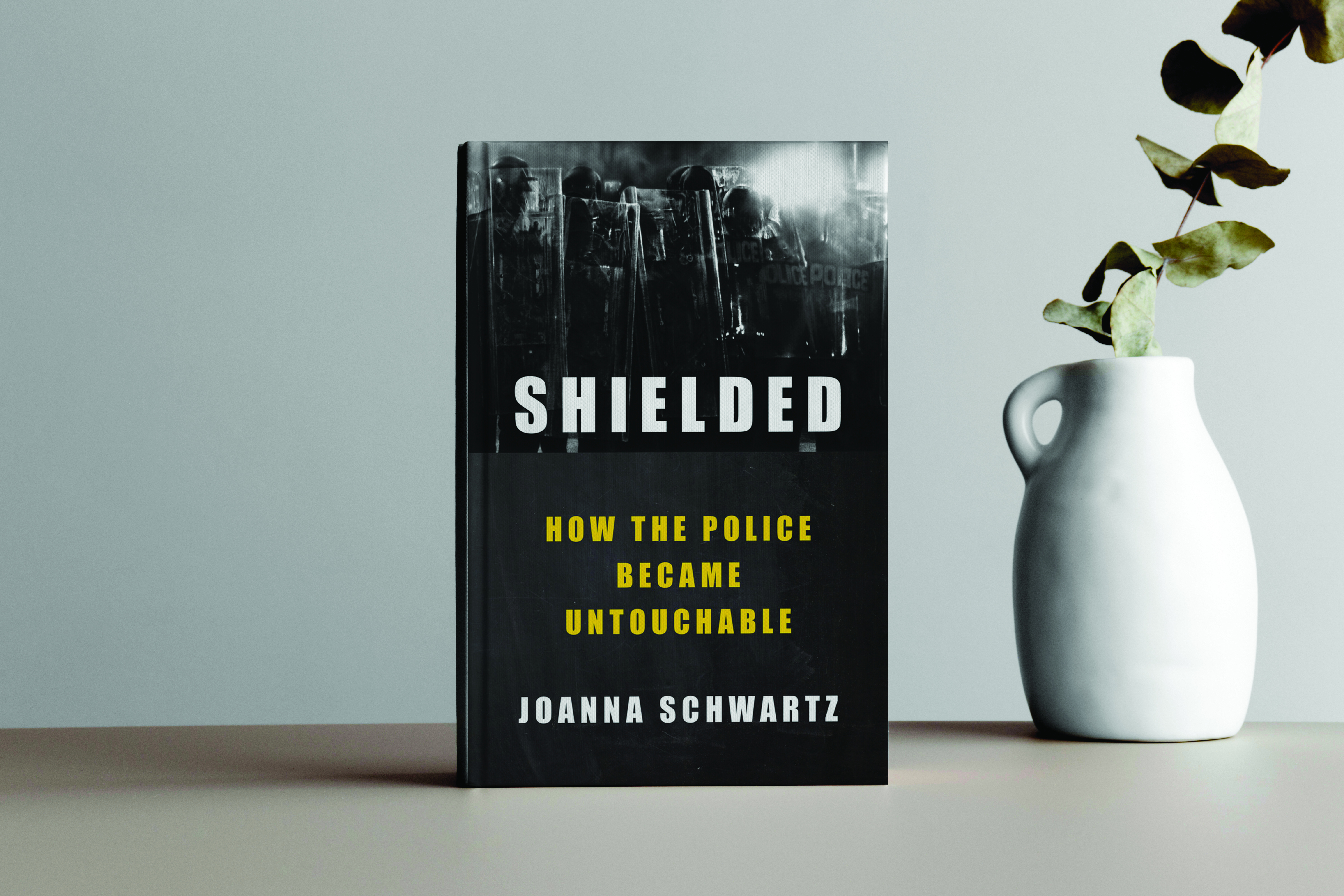New book explores how qualified immunity protects police in brutality and wrongful death cases

Joanna Schwartz. Photo by Katherine Shapiro.
High-profile cases like the killings of George Floyd and Breonna Taylor by police have led to further growth of the Black Lives Matter movement, calls for defunding the police, police reform and greater police accountability.
In her new book, Shielded: How the Police Became Untouchable, Joanna Schwartz, a professor at the UCLA School of Law and an expert in qualified immunity, tells the stories of people who have been wrongly harmed or killed by police. Shielded also deals with the often-impossible task of making police accountable because of multiple protections in the courts and local government.
Qualified immunity is a centerpiece of Shielded. Could you talk about how it undermines police accountability and give an example of how it creates impossible obstacles for plaintiffs?
Qualified immunity is a defense that the Supreme Court created in 1967. It was intended to be a good faith protection for officers who violated the Constitution but did so acting in good faith. The Supreme Court said they should have this protection, which meant they couldn’t be sued for monetary damages against them. But because of a series of decisions made over the last 56 years, qualified immunity has nothing to do with whether a police officer acted in good faith. Police officers can actually act in bad faith and still get qualified immunity. What the defense today turns on is whether the law was clearly established. And the Supreme Court has said except in extraordinary circumstances, to clearly establish the law, there has to be a prior court decision holding unconstitutional, nearly identical facts. And this standard can mean that a person whose rights were violated can get no relief simply because an officer acted maliciously, intentionally violated the Constitution in a way that had not precisely been ruled unconstitutional before.

You analyzed 1,200 police misconduct cases. What were some takeaways?
A main goal that the Supreme Court has described being served by qualified immunity is protecting officers from financial liability in these cases. And if you hear current debate around qualified immunity, defenders of the doctrine repeatedly invoke the possibility that without qualified immunity, officers would be bankrupted for split-second mistakes that they make on the job. To test that, I looked at 81 law enforcement agencies across the country and looked at lawsuits that were successful and paid out over a six-year period. What I found was that 99.98% of the dollars came not from the officers but from the local governments or their insurers. The fact that officers virtually never contributed anything into these cases was not a result of qualified immunity protections, but instead what are called indemnification agreements or statutes that provide that when an officer is sued, any settlement or judgment will be paid from government funds.
Where do you think the courts are headed on qualified immunity?
The federal bench has plenty of judges who are very critical of qualified immunity who cross the ideological divide on other topics—judges appointed by Republicans and Democrats and in every part of the country. Federal circuit and district courts don’t have the authority to overturn qualified immunity; they can interpret the law in ways that are limiting in some way, but they can’t affirmatively overturn the doctrine. The Supreme Court also has critics of qualified immunity, including Clarence Thomas on the right and Sonia Sotomayor on the left. Around the time of the George Floyd murder, the thought was that the Supreme Court might actually take action on qualified immunity and reconsider the doctrine. In June 2020, the Supreme Court decided not to grant cert on upwards of a dozen qualified immunity cases that it had pending, which made people think perhaps the Supreme Court was deferring to Congress and letting Congress fix qualified immunity. Congress considered it but ultimately didn’t take that step. The Supreme Court hasn’t taken that step.
 Shielded: How the Police Became Untouchable
Shielded: How the Police Became UntouchableCould you talk about some of the new strategies being used in local and state governments to address police accountability?
Soon after George Floyd was murdered, Colorado enacted a comprehensive police reform bill that creates a state law/right to sue for constitutional violations, and says that qualified immunity is not a defense to these state law claims because the Supreme Court’s qualified immunity doctrine just applies to federal court decisions. These are state constitutional decisions, where the state has the final word on what protections apply. Colorado, New Mexico and New York City have all passed this kind of legislation. Other jurisdictions are considering it, and I think that this is a valuable model that should be replicated in other states.
I also think there’s a lot that can happen at the local government level. Cities across the country are doing innovative and important reform work—limiting police involvement in traffic stops, for example, and in calls by people who are in mental health crises. I think local governments can make sure their police departments are learning from lawsuits brought against them, which can cost millions of dollars each year. They can require police departments to pay settlements and judgments out of their budgets. That’s happening in jurisdictions across the country, including the Los Angeles Sheriff’s Department. They don’t complain about it; they say it actually helps them keep track of what they’re doing and what they’re spending.
This story was originally published in the October-November 2023 issue of the ABA Journal under the headline: “Shielded: New book explores how qualified immunity protects police in brutality and wrongful death cases.”



